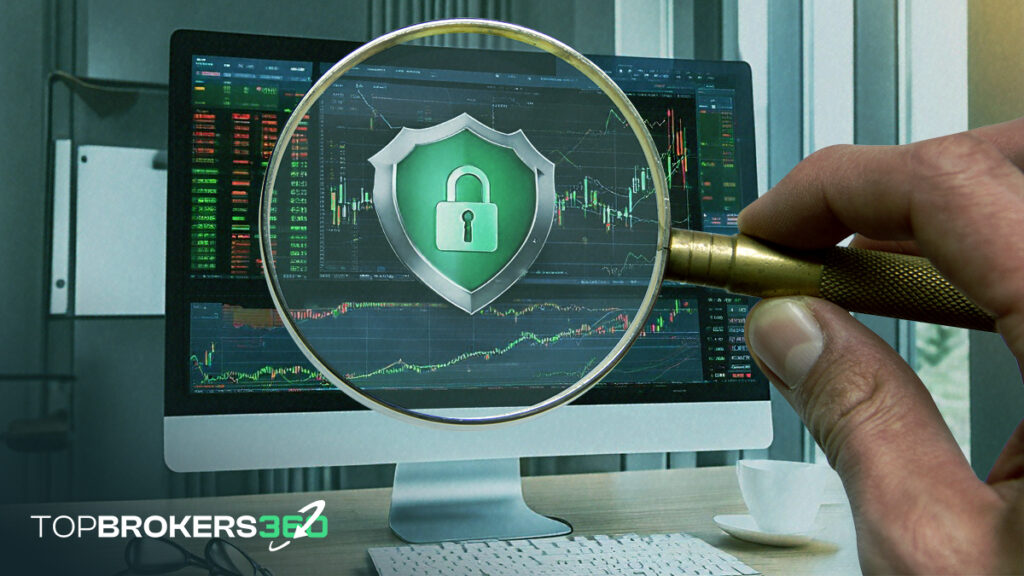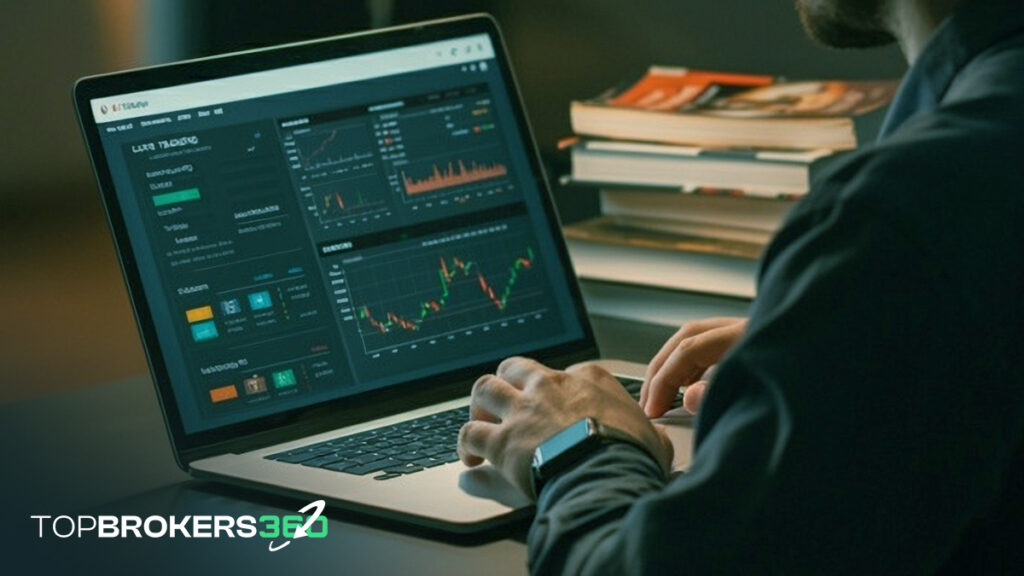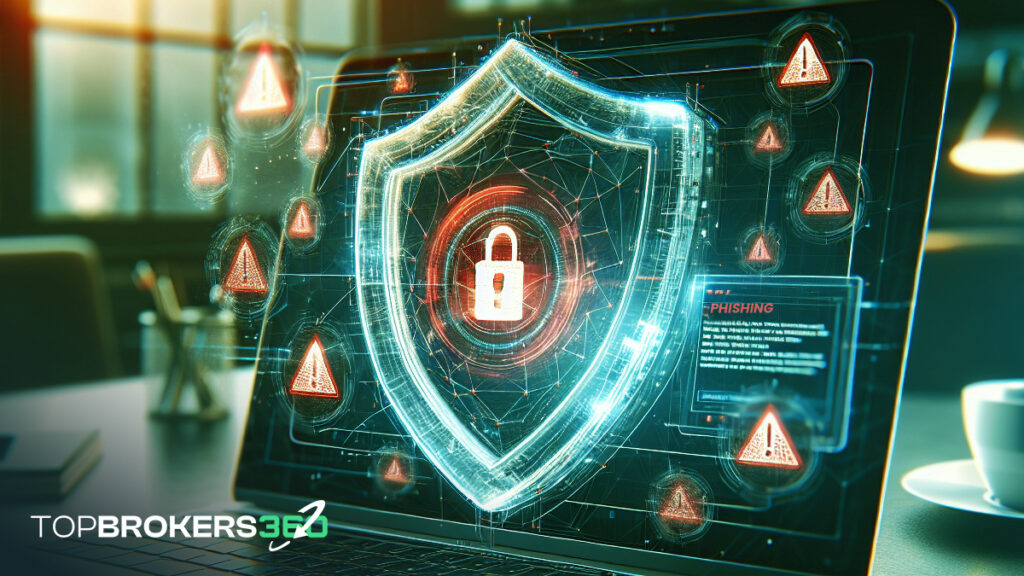- 1. What Are the Warning Signs of Fraudulent Online Trading Platforms?
- 2. Is CFD and Forex Trading Safe for Beginners?
- 3. How to Verify If a Trading Platform Is Legitimate?
- 4. What to Do If You’re a Victim of Investment Fraud?
- 5. How to Avoid Identity Theft and Stay Safe?
- 6. Checklist to Protect Yourself from Online Trading Scams
The dream of quick money often drives many investors into financial ruin. Fraudulent online trading platforms frequently advertise their services through social media and websites, but they often trap customers with promises of high profits. These platforms offer highly speculative investments that almost always end in total financial loss for their victims.
According to Europol, this is a Europe-wide fraud phenomenon. In 2020, the Bundeskriminalamt (BKA) reported a total financial loss of 429 million euros due to investment fraud and embezzlement related to capital investments.
How can you protect yourself from falling victim to these scams?
What Are the Warning Signs of Fraudulent Online Trading Platforms?
Many fraudulent online trading platforms claim to offer safe investments with guaranteed returns. They often promote CFD trading (Contracts for Difference) or Forex trading (Foreign Exchange Trading), both of which carry significant risks. Victims are drawn in by the promise of making easy money, but these platforms typically offer highly speculative investments that are not suitable for beginners.

A critical step in avoiding these scams is to check if the platform is a licensed company regulated by a recognized authority, such as BaFin (Federal Financial Supervisory Authority) in Germany or other trusted financial regulators. Fraudulent platforms often operate without proper oversight, leaving investors with little protection.
| Warning Signs | Details |
 Guaranteed High Profits Guaranteed High Profits |
Any promise of high profits without risk is a red flag. |
 Lack of Regulation Lack of Regulation |
Ensure the broker is licensed by trusted authorities. |
 Unsolicited Offers Unsolicited Offers |
Be cautious of cold calls or emails offering investment opportunities. |
 No Clear Imprint No Clear Imprint |
Check if the platform has a complete imprint with legal information. |
Is CFD and Forex Trading Safe for Beginners?
CFD trading and Forex trading are popular investment methods, but they are highly speculative and come with a significant risk of loss. Trusted brokers understand that these instruments can be complex, especially for beginners, and they offer resources to help new traders understand the risks involved.
Reputable brokers provide comprehensive educational tools such as:
- Free training materials like webinars, eBooks, and demo accounts.
- Clear explanations of risk management strategies.
- Guides on how to trade safely using instruments like CFDs and Forex, without misleading promises.
- By offering these resources, trusted brokers help beginners build the knowledge they need to navigate volatile markets confidently.

In contrast, fraudulent online trading platforms do not provide adequate educational materials. These scam brokers rely on keeping beginners confused and uninformed. Their goal is to lead inexperienced traders into making poor decisions by:
- Withholding essential information about risks.
- Promising guaranteed high profits without explaining the potential for loss.
- Offering limited or no educational support makes it hard for beginners to learn the basics of safe trading.
| Feature | Trusted Brokers | Scam Brokers |
| Educational Tools |  Provide extensive resources such as webinars, tutorials, and demo accounts. Provide extensive resources such as webinars, tutorials, and demo accounts. |  Offer little to no educational tools, keeping users in the dark about trading basics. Offer little to no educational tools, keeping users in the dark about trading basics. |
| Risk Management Strategies |  Offer clear explanations on managing risk, including the use of stop-loss orders and position sizing. Offer clear explanations on managing risk, including the use of stop-loss orders and position sizing. |  Rarely mention risk management, instead focusing on promises of high profits. Rarely mention risk management, instead focusing on promises of high profits. |
| Transparency |  Clearly outline trading conditions, fees, and potential risks. Clearly outline trading conditions, fees, and potential risks. |  Withhold or hide critical information about fees, risks, and trading conditions. Withhold or hide critical information about fees, risks, and trading conditions. |
| Support for Beginners |  Provide dedicated support to help new traders understand the platform and trading instruments. Provide dedicated support to help new traders understand the platform and trading instruments. |  Offer limited or no support, leaving beginners to navigate complex trading systems alone. Offer limited or no support, leaving beginners to navigate complex trading systems alone. |
| Regulation and Licensing |  Licensed and regulated by recognized financial authorities. Licensed and regulated by recognized financial authorities. |  Often unregulated or falsely claim to be licensed, operating outside legal frameworks. Often unregulated or falsely claim to be licensed, operating outside legal frameworks. |
| Profit Promises |  Never guarantee profits and emphasize the risks associated with CFD trading and Forex trading. Never guarantee profits and emphasize the risks associated with CFD trading and Forex trading. |  Make false promises of guaranteed high returns with no risk. Make false promises of guaranteed high returns with no risk. |
| Access to Educational Content |  Easy access to educational materials like trading guides and market analysis tools. Easy access to educational materials like trading guides and market analysis tools. |  Keep educational content limited or unavailable to prevent users from gaining sufficient knowledge. Keep educational content limited or unavailable to prevent users from gaining sufficient knowledge. |
| Withdrawal Processes |  Provide transparent and straightforward withdrawal processes, ensuring funds can be accessed easily. Provide transparent and straightforward withdrawal processes, ensuring funds can be accessed easily. |  Often delay or block withdrawals, making it difficult for traders to access their money. Often delay or block withdrawals, making it difficult for traders to access their money. |
| Terms of Service |  Offer clear, detailed terms of service, making it easy to understand fees and conditions. Offer clear, detailed terms of service, making it easy to understand fees and conditions. |  Use vague or hidden terms to confuse traders, often leading to unexpected fees or restrictions. Use vague or hidden terms to confuse traders, often leading to unexpected fees or restrictions. |
| Communication with Clients |  Open and responsive communication, with customer support readily available through multiple channels. Open and responsive communication, with customer support readily available through multiple channels. |  Provide minimal communication, often avoiding questions about withdrawals, risks, or regulatory status. Provide minimal communication, often avoiding questions about withdrawals, risks, or regulatory status. |
In fact, binary options—a speculative product notorious for misleading traders—was banned for private investors in Europe in 2018 due to the extremely high risk. Fraudulent platforms often ignore these regulations and promise high profits without risk, which is a clear sign of a scam. Legitimate brokers, on the other hand, are transparent about the risks involved and focus on educating traders about safe practices.
How to Verify If a Trading Platform Is Legitimate?
Before trusting any online trading platform, it’s essential to do your research. Always ensure that the broker is a licensed company and is listed in the database of a respected financial authority.
Here’s what you need to check:
- Complete Legal Imprint: Does the platform provide a complete imprint with clear information about its legal status?
- Company Headquarters: Where is the company headquartered? Make sure the company is based in a reputable jurisdiction.
- Licensing & Regulation: Is the broker listed with a trusted financial supervisory authority?
- Regulatory Warnings: Check if the platform has been flagged by any regulatory authorities or consumer protection bodies.
- Transparent Terms & Conditions: Review the terms of service for clarity on trading fees, withdrawal policies, and risk disclosures.
- Customer Support: Is the broker’s customer support readily accessible? Reliable brokers provide multiple communication channels.
Still unsure which brokers to trust?
What to Do If You’re a Victim of Investment Fraud?
Falling victim to investment fraud can be overwhelming, but taking quick action can help protect your financial interests and prevent further damage. Here’s what you should do:
- Report the incident immediately: Contact your local regulatory authority to file a formal complaint.
- File a criminal complaint: Report the fraud to the police to ensure a legal investigation is initiated.
- Contact Europol: If you're in Europe, alert Europol to the scam to help prevent others from becoming victims.
- Beware of recovery scams: Be cautious of scammers posing as lawyers or regulatory agencies, offering to help recover lost funds in exchange for fees.
- Protect your personal information: Avoid sharing sensitive information like copies of your ID, as fraudsters can use this to commit identity theft.
- Stay vigilant: Monitor your financial accounts and personal information for any unusual activity.
Taking these steps can help you recover from the fraud and safeguard yourself against further scams.
How to Avoid Identity Theft and Stay Safe?

Fraudsters often attempt to steal personal information, such as copies of identification documents. To protect yourself from identity theft, follow these steps:
- Don’t Share Your ID: Never send copies of your ID or personal documents to suspicious platforms.
- Limit Device Access: Avoid giving anyone access to your devices via remote maintenance software.
- Be Wary of Unsolicited Advice: Be cautious of investment advice that comes from cold calls or emails; legitimate brokers usually don’t reach out this way.
These steps will help keep your personal information secure and protect you from identity theft.
Checklist to Protect Yourself from Online Trading Scams
| Step | Action | Why It’s Important |
 Research Thoroughly Research Thoroughly |
Ensure the trading platform is a regulated broker, licensed by trusted authorities. | A regulated broker provides more protection and operates under strict legal and financial standards. |
 Avoid Unrealistic Promises Avoid Unrealistic Promises |
Be cautious of platforms that promise high profits with no risk. | Legitimate trading involves risk, and platforms offering guaranteed profits are likely fraudulent. |
 Check for Proper Regulation Check for Proper Regulation |
Verify the broker’s credentials in the company database of recognized financial regulators like BaFin. | Ensures that the broker complies with the law and offers a safer trading environment. |
 Report Fraud Report Fraud |
If you are a victim of fraud, contact the authorities and file a criminal complaint immediately. | Timely reporting helps initiate investigations and increases the chance of recovering lost funds. |
By staying informed and vigilant, you can protect yourself from falling into the traps set by fraudulent online trading platforms.
Remember to stay aware and always educate yourself in order to invest wisely!
